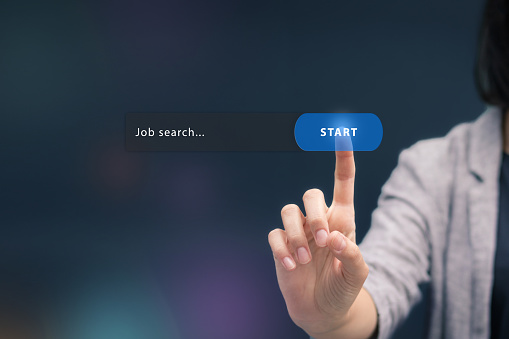First Person
Student Notebook: The Outstanding Impacts of Supervisors on Student Success and Well-being

Selecting a supervisor is the first critical decision a doctoral student will make. Finding the right supervisor is critical because it affects our personal and academic lives for the next 4 to 6 years. Many students assume they are adaptive and flexible and can handle a few disagreements with their supervisors. The research shows otherwise. I am a PhD candidate whose primary research focus is doctoral student mental health. From time to time, I talk with other cohorts about how their supervisors impact their doctoral program experiences. I’d like to share some of what I’ve learned, including the vital importance of the right supervisor for your success and well-being during your doctoral program.
Supervisors can affect and shape students’ learning experiences (Barnard & Shultz, 2019; Lovitts, 2002) and build a culture conducive to students’ transition to research autonomy (Barnard & Shultz, 2019). They are the primary determinant of student engagement and participation in various research opportunities (Boden et al., 2011), and they impact students’ perceptions of graduate school and its requirements, dissertation topic selection and quality, and future job opportunities (Lovitts, 2002). Furthermore, studies have shown that supervisors impact students’ satisfaction with their program (Zhao et al., 2007), mental health (Liu et al., 2019), well-being (McAlpine & McKinnon, 2013), research self-efficacy (Paglis et al., 2006), writing efficacy (González-Ocampo & Castelló, 2018), and persistence (Barnes, 2009; Cockrell & Shelley, 2011). Aligned with these findings, several studies have cited supervisors as the primary reason for students’ academic progress.
The first consideration for student success is to work with a supervisor who has a good reputation in research. Try to find a supervisor with whom you have shared research interests; otherwise, you might find yourself working in silos and out of the loop of ongoing research in your lab. Students’ perceptions of their interactions with faculty supervisors affect their feelings of connectedness and belongingness (Bireda, 2019); perceiving this interaction positively can help you perform academically better than students who lack these feelings of connectedness and belongingness (Curtin et al., 2013).
The second key to doctoral student success in academia is clear communication with supervisors. Rose (2003) described communication skills (“My ideal mentor would communicate openly, clearly, and effectively”) and the provision of feedback (“My ideal mentor would provide honest feedback, both good and bad, about my work”) as the two main characteristics of an ideal mentor. Without good communication with supervisors, you could be lost in the ambiguity of your different responsibilities. Students value support, feedback, trust, and good communication in their relationship with their supervisors (Bireda, 2019).
In my own research, I surveyed doctoral students about their motives for changing their supervisors. Poor communication was one of the most common:
“After the first semester, I changed doctoral supervisors due to a lack of communication on their part (not answering emails and inability to plan a meeting with them).”
“… my supervisor isn’t communicative, and I go months at a time not hearing from them.”
“I haven’t changed YET, but I am planning on it due to difficulties in communicating with my supervisor.”
The third key to doctoral student success in academia is having a supportive supervisor. That support might be emotional, educational, or practical—such as being available when you have questions and providing constructive feedback. Highly effective supervisors assist students in fulfilling degree requirements, meeting departmental deadlines, and preparing for comprehensive exams (Ellis, 2001). All these forms of support contribute to student well-being (Thoits, 2010), and lack of them can increase negative emotions such as anxiety, self-doubt, and uncertainty. In my study, I asked doctoral students about their relationship with their supervisors and how it impacted them personally. Their responses included the following:
“I did not get the academic/emotional support and advice… [which] used to stress me out.”
“A supervisor who is not overly critical and harsh has made me much happier and has lowered my anxiety levels generally.”
“… making me more anxious and self-doubting overall.”
“I often felt unsure of instructions/guidance and expectation.”
Doctoral students’ mental health is strongly impacted by their supervisory relationship (Peluso et al., 2011). Given the central role of the supervisor in doctoral students’ academic life and well-being, you need to ask for advice before choosing your supervisor.
Here are a few more of my thoughts regarding improving student–supervisor relationships:
- Always keep in mind that supervisors have a heavy workload, and they may not always remember the details of every discussion. Therefore, having a written record of your discussions could help you and your supervisors avoid confusion. Writing down meeting minutes and preparing a short write-up about important decisions can provide a helpful reference when in doubt.
- If you ever feel that a topic you discussed with your supervisor was unclear, send an email and ask for clarification. It is better to eliminate any assumptions from the start and work on something only when you are entirely sure about it.
- Clarify your supervisor’s expectations by asking about working hours and the amount of time they expect you to be present in the lab.
- If you would like to be involved in research or any publication, simply ask your supervisor. Participating in your supervisors’ studies is an excellent opportunity for you to learn research methods and make a professional bond with your supervisors.
In the end, take advantage of your time in graduate school regardless of your supervisor’s approach. Graduate school offers an incredible chance for you to develop as a student and transition into a professional. Strive to make friendships and establish relationships; after all, socializing and making connections are necessary components of graduate education.
Finally, keep in mind that you, as a graduate student, also have obligations to your supervisor. Be considerate of their time and efforts and make every attempt to develop a good professional connection with them. However, do not forget to seek assistance from your department and cohorts if you encounter problems with your supervisor.
Related content we think you’ll enjoy
-

Student Notebook: Starting the Nonacademic Job Search After Graduate School
Menahal Latif shares the steps to begin the job search for students pursuing careers outside of academia.
-

Student Notebook: Emotion Processing in Bilinguals
The relationship between language and culture plays a vital role in what word is used to express a particular emotion.
-

Student Notebook: Learning Through Exposure
Ellen Finch on what therapists in training can learn from exposure therapy during a pandemic.
Student Notebook serves as a forum in which APS Student Caucus members communicate their ideas, suggestions, and experiences. Read other Student Notebook columns here, and learn about the benefits of Student Membership.
Interested in submitting a Student Notebook article of your own? Learn more and indicate your interest by clicking here (logged-in APS members only).
Feedback on this article? Email [email protected] or login to comment.
References
Barnard, R. A., & Shultz, G. V. (2019). “Most important is that they figure out how to solve the problem”: How do advisors conceptualize and develop research autonomy in chemistry doctoral students? Higher Education, 79, 981–999.
Barnes, B. J. (2009). The nature of exemplary doctoral advisors’ expectations and the ways they may influence doctoral persistence. Journal of College Student Retention: Research, Theory & Practice, 11(3), 323–343.
Bireda, A. D. (2019). Doctoral student connectedness in open distance learning: A case of students and supervisors. Africa Education Review, 16(5), 16–28.
Boden, D., Borrego, M., & Newswander, L. K. (2011). Student socialization in interdisciplinary doctoral education. Higher Education, 62(6), 741–755.
Cockrell, C. N., & Shelley, K. (2011). The relationship between academic support systems and intended persistence in doctoral education. Journal of College Student Retention: Research, Theory & Practice, 12(4), 469–484.
Curtin, N., Stewart, A. J., & Ostrove, J. M. (2013). Fostering academic self-concept: Advisor support and sense of belonging among international and domestic graduate students. American Educational Research Journal, 50(1), 108–137.
Ellis, E. M. (2001). The impact of race and gender on graduate school socialization, satisfaction with doctoral study, and commitment to degree completion. Western Journal of Black Studies, 25(1), 30–45.
González-Ocampo, G., & Castelló, M. (2018). Writing in doctoral programs: examining supervisors’ perspectives. Higher Education, 76(3), 387–401.
Liu, C., Wang, L., Qi, R., Wang, W., Jia, S., Shang, D., Shao, Y., Yu, M., Zhu, X., & Yan, S. (2019). Prevalence and associated factors of depression and anxiety among doctoral students: The mediating effect of mentoring relationships on the association between research self-efficacy and depression/anxiety. Psychology Research and Behavior Management, 12, 195–208.
Lovitts, B. E. (2002). Leaving the ivory tower: The causes and consequences of departure from doctoral study. Rowman & Littlefield.
McAlpine, L., & McKinnon, M. (2013). Supervision—the most variable of variables: Student perspectives. Studies in Continuing Education, 35(3), 265–280.
Paglis, L. L., Green, S. G., & Bauer, T. N. (2006). Does adviser mentoring add value? A longitudinal study of mentoring and doctoral student outcomes. Research in Higher Education, 47(4), 451–476.
Peluso, D. L., Carleton, R. N., & Asmundson, G. J. (2011). Depression symptoms in Canadian psychology graduate students: Do research productivity, funding, and the academic advisory relationship play a role? Canadian Journal of Behavioural Science, 43(2), 119–127.
Rose, G. L. (2003). Enhancement of mentor selection using the ideal mentor scale. Research in Higher Education, 44(4), 473–494.
Thoits, P. A. (2010). Stress and health: Major findings and policy implications. Journal of Health and Social Behavior, 51(1, Suppl.), S41–S53.
Zhao, C. M., Golde, C. M., & McCormick, A. C. (2007). More than a signature: How advisor choice and advisor behaviour affect doctoral student satisfaction. Journal of Further and Higher Education, 31(3), 263–281.





APS regularly opens certain online articles for discussion on our website. Effective February 2021, you must be a logged-in APS member to post comments. By posting a comment, you agree to our Community Guidelines and the display of your profile information, including your name and affiliation. Any opinions, findings, conclusions, or recommendations present in article comments are those of the writers and do not necessarily reflect the views of APS or the article’s author. For more information, please see our Community Guidelines.
Please login with your APS account to comment.